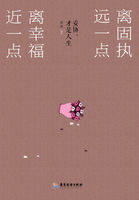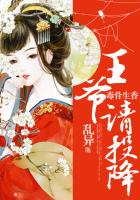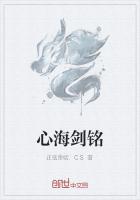We believe that, so far from the triumph of dramatic poetry terminating with Massinger, dramatic art had been steadily growing worse from the first years of James; that instead of the arts advancing to perfection under Charles the First, they steadily deteriorated in quality, though the supply became more abundant; that so far from there having been a sudden change for the worse in the drama after the Restoration, the taste of the courts of Charles the First and of Charles the Second are indistinguishable; that the court poets, and probably the actors also, of the early part of Charles the Second's reign had many of them belonged to the court of Charles the First, as did Davenant, the Duke and Duchess of Newcastle, Fanshaw, and Shirley himself; that the common notion of a 'new manner' having been introduced from France after the Restoration, or indeed having come in at all, is not founded on fact, the only change being that the plays of Charles the Second's time were somewhat more stupid, and that while five of the seven deadly sins had always had free licence on the stage, blasphemy and profane swearing were now enfranchised to fill up the seven. As for the assertion that the new manner (supposing it to have existed) was imported from France, there is far more reason to believe that the French copied us than we them, and that if they did not learn from Charles the First's poets the superstition of 'the three unities,' they at least learnt to make ancient kings and heroes talk and act like seventeenth century courtiers, and to exchange their old clumsy masques and translations of Italian and Spanish farces for a comedy depicting native scoundrelism. Probably enough, indeed, the great and sudden development of the French stage, which took place in the middle of the seventeenth century under Corneille and Moliere, was excited by the English cavalier playwrights who took refuge in France.
No doubt, as Mr. Gifford says, the Puritans were exasperated against the stage-players by the insults heaped on them; but the cause of quarrel lay far deeper than any such personal soreness. The Puritans had attacked the players before the players meddled with them, and that on principle; with what justification must be considered hereafter. But the fact is (and this seems to have been, like many other facts, conveniently forgotten), that the Puritans were by no means alone in their protest against the stage, and that the war was not begun exclusively by them. As early as the latter half of the sixteenth century, not merely Northbrooke, Gosson, Stubs, and Reynolds had lifted up their voices against them, but Archbishop Parker, Bishop Babington, Bishop Hall, and the author of the Mirror for Magistrates. The University of Oxford, in 1584, had passed a statute forbidding common plays and players in the university, on the very same moral grounds on which the Puritans objected to them. The city of London, in 1580, had obtained from the Queen the suppression of plays on Sundays; and not long after, 'considering that play- houses and dicing-houses were traps for young gentlemen and others,' obtained leave from the Queen and Privy Council to thrust the players out of the city, and to pull down the play-houses, five in number; and, paradoxical as it may seem, there is little doubt that, by the letter of the law, 'stage plays and enterludes' were, even to the end of Charles the First's reign, 'unlawful pastime,' being forbidden by 14 Eliz., 39 Eliz., 1 Jacobi, 3 Jacobi, and 1 Caroli, and the players subject to severe punishment as 'rogues and vagabonds.' The Act of 1 Jacobi seems even to have gone so far as to repeal the clauses which, in Elizabeth's reign, had allowed companies of players the protection of a 'baron or honourable person of greater degree,' who might 'authorise them to play under his hand and seal of arms.' So that the Puritans were only demanding of the sovereigns that they should enforce the very laws which they themselves had made, and which they and their nobles were setting at defiance. Whether the plays ought to have been put down, and whether the laws were necessary, is a different question; but certainly the court and the aristocracy stood in the questionable, though too common, position of men who made laws which prohibited to the poor amusements in which they themselves indulged without restraint.
But were these plays objectionable? As far as the comedies are concerned, that will depend on the answer to the question, Are plays objectionable, the staple subject of which is adultery? Now, we cannot but agree with the Puritans, that adultery is not a subject for comedy at all. It may be for tragedy; but for comedy never. It is a sin; not merely theologically, but socially, one of the very worst sins, the parent of seven other sins,--of falsehood, suspicion, hate, murder, and a whole bevy of devils. The prevalence of adultery in any country has always been a sign and a cause of social insincerity, division, and revolution; where a people has learnt to connive and laugh at it, and to treat it as a light thing, that people has been always careless, base, selfish, cowardly,--ripe for slavery. And we must say that either the courtiers and Londoners of James and Charles the First were in that state, or that the poets were doing their best to make them so.















